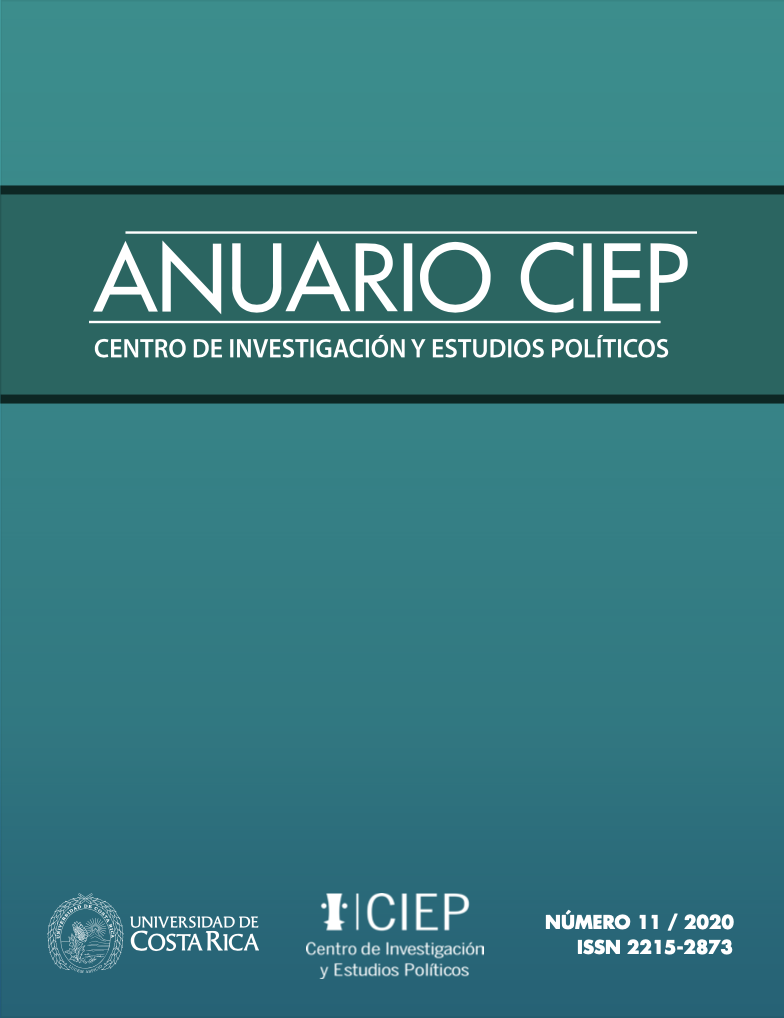Abstract
In the last decade, it has been built an imaginary of Costa Rica as a leader in “clean”/renewable energies, as well as in the fight against climate change. This article aims to reflect on the construction of this imaginary, which has reached its maximum expression through the launch, in February 2019, of the National Decarbonization Plan (PND, in Spanish), explicitly promoted as a way of turning the country into a “global decarbonization laboratory”. It is argued that the international image of Costa Rica regarding “clean” energy country is inscribed in a context of global governance of climate change, which, since its origins in the 1990s, has been dominated by a paradigm that seeks to reconcile the environmental/climatic issue with the developmentalist and economistic market thinking: green capitalism. Likewise, it is asserted that Costa Rica plays a strategic role as a “neoliberal eco-laboratory”, a place for experimentation of innovative forms of market-based environmental governance, of which decarbonization represents the clearest example.

